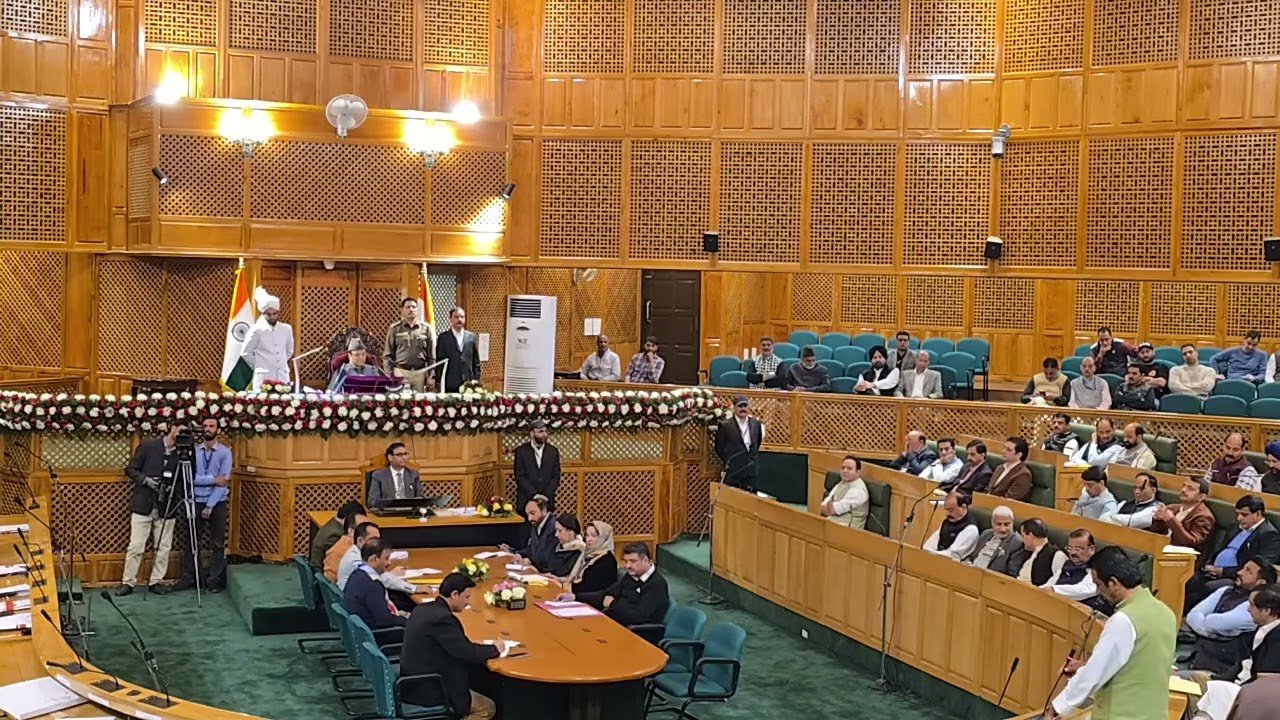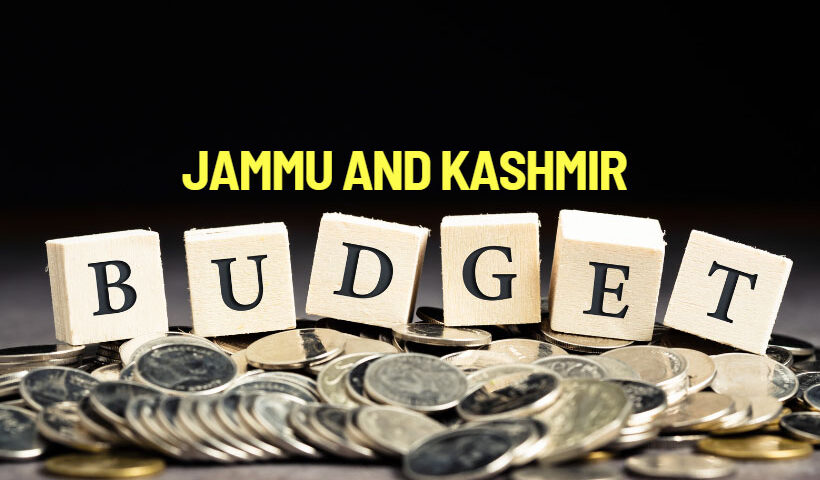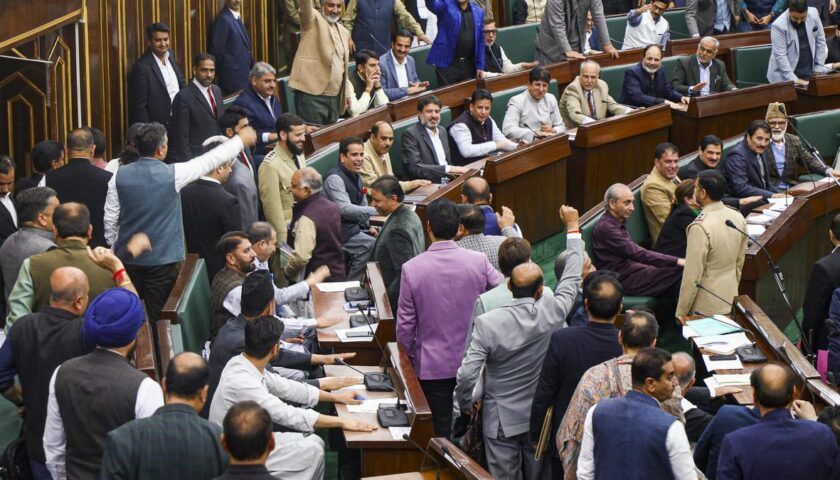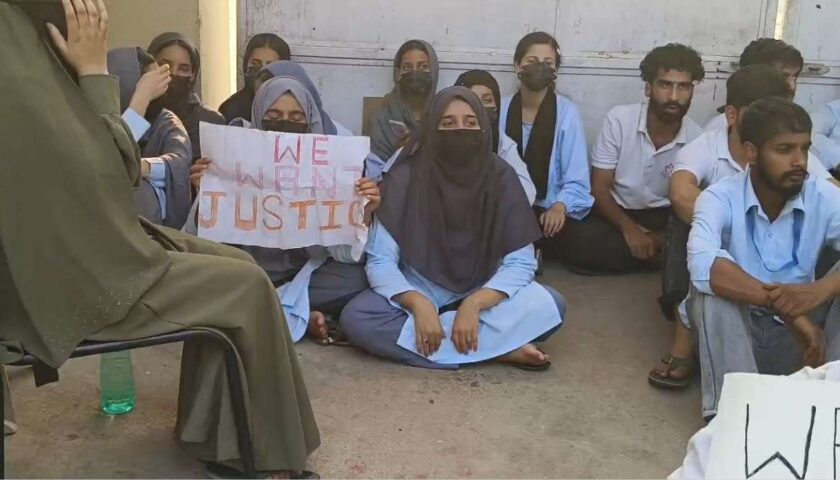Jammu & Kashmir autumn session 2025 – Bias in Land Grants Rules 2022 | Detailed Analysis
By: Javid Amin | 31 October 2025
The autumn session of the Jammu & Kashmir Legislative Assembly in 2025 witnessed a sharp political flash-point over the implementation of the Jammu & Kashmir Land Grants Rules, 2022. Speaking on the floor of the House and subsequently on social media, NC spokesperson and MLA Tanvir Sadiq raised strong allegations that the Rules were being applied selectively — harshly in Kashmir, leniently in Jammu — thereby undermining local ownership, regional fairness and the very idea of Jammu & Kashmir’s unity.
In this article, we expand on each dimension of the controversy: the background of the Rules 2022, what they changed, how they are allegedly being implemented differently across the two divisions, the immediate economic and social impact, the political implications, and why this matters for the future of the region. We will draw on official documents, ground-reporting and cross-checked facts to provide a detailed, human-friendly yet professional analysis.
What are the Land Grants Rules 2022 and why were they introduced?
01. Historical background: The 1960 regime
Under the Jammu & Kashmir Land Grants Act, 1960 and associated rules, government land in the erstwhile State of JK was made available on lease for building purposes, including hotels, institutions, shops and residential use. The Act extended to the whole Union Territory now known as J&K.
Some key points:
-
Under the 1960 rules, prime tourist and commercial locations in Kashmir (e.g., Gulmarg, Srinagar) and Jammu (e.g., twin-capital zone) were opened up for lease and development of hotels, commercial complexes and residential buildings.
-
The lease period could extend up to 99 years under older rules.
-
The rules gave certain advantages (or critics say privileges) to lessees who may have invested in hotels etc under long leases, in some cases paying only token ground rent. Some coverage described the older system as “regressive”.
02. Enter the new Rules: Why change?
Over time, several concerns were raised: the old lease regime was seen as non-transparent, potentially favouring entrenched interests, and not aligned with contemporary land governance models. The UT administration argued that the previous regime did not allow efficient monetisation of government land, and led to long-term lock-in without realising full value. IASbaba
Thus, the new rules — Land Grants Rules 2022 — were notified to replace the earlier regime and bring in fresh lease procedure, shorter periods, and more transparent auctions of expired leases.
03. Key provisions of the Rules 2022
From a close reading of the official notification and commentary, the main features of the Land Grants Rules 2022 are:
-
The Rules apply to the whole Union Territory of J&K.
-
All leases (except subsisting or expired residential leases) including those granted under the 1960 Rules or the 2007 Notified Area (Tourism Sector) rules, and those leases expired or determined prior to the coming into force, shall not be renewed and shall stand determined.
-
The lease period for fresh grants is set “ordinarily” for 40 years, a significant reduction from 99 years earlier.
-
The Rules broaden permissible uses of leased government land: education, healthcare, tourism, skill development, traditional arts, hydro-electric, recreational, housing for ex-servicemen, war widows, specially-abled, migrant workers, etc.
-
The outgoing lessees must hand over possession of land upon lease termination/failure to extend; failure to do so may trigger eviction under the Public Premises (Eviction of Unauthorised Occupants) Act, 1980.
-
An empowered committee headed by the Financial Commissioner (Revenue) will identify land, recommend lease period, value, purpose and monitor the lease agreements. Fresh leases will be put to online auction.
In short, the Rules reflect a shift: from long-term preferential leases towards shorter leases, competitive auctions, broader uses of land, and a more active role of government to reclaim expired leases.
What are the accusations raised by MLA Tanvir Sadiq?
01. Who is Tanvir Sadiq and what did he say?
Tanvir Sadiq is a legislator from the National Conference (NC) representing the Zadibal constituency in Srinagar. On the last day of the autumn session in 2025, he raised concerns in the assembly about what he described as discriminatory implementation of the Land Grants Rules 2022. On social media (his Facebook page) he also posted:
“I raised in the Assembly how the Land Grants Rules, 2022 are being used selectively — aggressively in Kashmir, leniently in Jammu.” facebook.com+1
02. Key themes of the allegation
Sadiq’s allegations can be grouped into four inter-related themes:
a) Evictions in Kashmir, not in Jammu
He claims that in Kashmir, hotels, shops, schools and homes (many in Srinagar and tourist zones) have been served eviction notices under the new regime, while in Jammu similar leases have either been quietly regularised or renewed — i.e., spared eviction.
He cited official data that 134 leases in Jammu had expired, but no hurry to evict those holding them.
b) Step-motherly treatment of Kashmir
His language described the situation as: “Why is there a step-motherly behaviour with Kashmir?” He argued that the unequal implementation shows intent to unsettle Kashmir’s local ownership structure, under the guise of transparency.
c) Economic impact on local entrepreneurs
He asserted that the Rules hit the backbone of the local economy — small hoteliers, shopkeepers, cooperative societies in Kashmir who built livelihoods over decades. Denying renewals, forcing auctions, he argued, doesn’t empower them; it displaces Kashmiri entrepreneurs and opens door for outsiders.
d) Threat to the idea of Jammu & Kashmir’s unity and fairness
Sadiq emphasised that land reforms should mean justice, not prejudice. He said: “What is being called reform is, in truth, replacement — replacing trust with fear, and local ownership with outside control.” He argued that unless one law, one standard applies for both regions, anything less is “an assault on fairness and on the very idea of Jammu & Kashmir’s unity.”
03. What is the ground reportage saying?
Multiple local news outlets captured similar sentiment. For example, an October 31 2025 report cited Sadiq’s assertion:
“In Kashmir, hotels, shops, schools & homes… have been served eviction notices. In Jammu, however, similar leases are not touched or quietly renewed or regularised.”
Another piece from Greater Kashmir noted:
“Land Grants Rules used aggressively in Kashmir, leniency adopted in Jammu: Tanvir Sadiq.”
Hence, the allegation is not purely rhetorical: there are media-records of specific evictions in Kashmir aligned with the timing of the Rules 2022 being invoked, and claims of fewer visible actions in Jammu.
What is actually happening on the ground – Fact-check & data overview
01. Evidence of evictions in Kashmir
While a comprehensive public database is hard to access, some sample-cases point to action:
-
In August 2025, the administration took possession of the 137-year-old Nedou’s Hotel in Gulmarg (owned by a relative of former CM Omar Abdullah). The hotel was occupying 98 kanals 11 marlas of government land without a valid lease since 1985. The lease had expired. This demonstrates the Rules being operationalised.
-
Reports quote Sadiq referencing “many hotels, shops, schools & homes” in Srinagar and tourist zones being served eviction notices. While each case is not enumerated publicly in the article, the claim is repeated in multiple media outlets.
02. Evidence of inaction or leniency in Jammu
Sadiq cited “134 leases have expired in Jammu division but there was no hurry to evict those holding those properties.”
Other reports say that in Jammu the implementation has been slower. Greater Kashmir says:
“Leniency adopted in Jammu: Tanvir Sadiq.”
However, independent verification of each individual expired-lease instance in Jammu is harder to locate in publicly available media. The absence of major reported evictions in Jammu (in contrast to Kashmir) suggests the disparity may exist or be perceived.
03. Analysis of the rules’ mechanics & impact
The Rules 2022 are clear: expired leases (except subsisting/expired residential leases) are not to be renewed and fresh auction process is to be followed. That means any commercial hotel/shop/property on an expired lease falls into that category.
Given the tourism-intensive economy of Kashmir and the number of hotels/shops built on long-term leases, the impact will be disproportionately felt there. Many such leases in Kashmir districts like Gulmarg, Pahalgam, Srinagar may have reached or are reaching expiry after decades. Experts had pointed out that the trek into fresh auctions could disrupt the local business setup:
“The hundreds of business establishments, hotels and shopping complexes in J&K might have to be closed down since most of these commercial establishments have sprung up on the leased land.”
04. Regional structure: Jammu vs Kashmir context
When you map the economy, tourism and lease-structures, you find that:
-
Kashmir’s economy has a substantial component of tourism (hotels, guesthouses, shops geared to visitors) especially in zones like Gulmarg, Pahalgam, Srinagar city.
-
Many of these businesses are held by local entrepreneurs or families, operating on leases granted decades ago under the older regime.
-
Jammu division, while having tourism too, has a different economic base (agriculture, trade, some tourism) and historically may have fewer of the large, prime-tourism leases that expire en masse.
Thus, when a blanket rule like “all leases to end unless residential” is applied, Kashmir’s exposure is higher. If the implementation pace is different between the divisions, the impact will feel unequal.
05. Why might the pace differ?
A few possible reasons (which require deeper ground-research) include:
-
Administrative focus: The UT administration might prioritise tourism-zone properties (many in Kashmir) to reclaim and auction for revenue, seeing them as high value.
-
Political environment: In Jammu, renewed leases may be under less media scrutiny, or local pressure/regulators may move slower.
-
Monitoring & visibility: Evictions in high-visibility tourist zones in Kashmir may draw more coverage; similar properties in Jammu may quietly renew or get regularised without visible eviction notices.
-
Local root-economy: The number of lease properties (hotels, shops) in Kashmir may simply be numerically higher and hence more visible.
06. Summarising the factual picture
-
The Rules 2022 are real, notified, and substantially change the lease regime in J&K.
-
Eviction/possession action is documented in Kashmir (the Nedou’s case is one clear example).
-
There is credible claim of disparity in implementation speed/strictness between Kashmir and Jammu (as articulated by Tanvir Sadiq and media reports).
-
Hard, publicly-available data on lease expiry lists and comparative evictions in Jammu vs Kashmir is limited in the media, making independent full-scale verification difficult.
-
The ground perception among local small entrepreneurs in Kashmir is of uncertainty, anxiety and possible displacement, which compounds the political dimension.
Economic and social consequences of the disputed implementation
01. Impact on local entrepreneurs in Kashmir
When local hoteliers, shopkeepers, cooperative societies in Kashmir build their livelihoods over decades, often based on stability of leases, the disruption of lease-renewals or threat of eviction has multiple consequences:
-
Business uncertainty: Knowing that the lease may not be renewed or will go to fresh auction challenges investment decisions—whether to expand, upgrade or even maintain business.
-
Capital risk: Many businesses may have borrowed or invested based on expected long-term lease security; forced auction may mean competing with large outside bidders with deeper pockets.
-
Displacement risk: If auctions are won by outsiders or larger corporations, local ownership could decline, reducing the share of locally-owned tourism trade. Sadiq’s quote neatly sums this up: “Denying renewals and forcing auctions doesn’t empower people, it displaces Kashmiri entrepreneurs and opens doors for outsiders.”
-
Social ripple effects: Job losses, decline of local supply chains, change in community-based economic ecosystem; for small hotels run by families, shift to large players may reduce local employment or change wage structures.
02. Differential regional economic impact
If Kashmir is facing more aggressive implementation of the Rules, then:
-
The tourism sector in Kashmir may see more disruption than that in Jammu (where perhaps less implementation).
-
The result could be a divergent economic trajectory: Kashmir economy weakened, Jammu economy less impacted, accentuating regional economic imbalance.
-
The perception of unfairness feeds into regional discontent, social insecurities, erosion of trust in administration.
03. Potential for displacement and demographic change
One of Sadiq’s deeper fears is that of replacement: local ownership giving way to outside control. He phrased it: “What is being called reform is, in truth, replacement — replacing trust with fear, and local ownership with outside control.”
In practical terms: if locally-owned hotels are evicted or forced to auction and outsiders win bids, then:
-
Capital and profits flow out of the local region.
-
Local culture and community linkages may alter (e.g., tourism businesses owned by non-locals may have less local participation).
-
Long-standing economic arrangements (families, cooperatives) may vanish or shrink.
04. Implications for unity, fairness and regional stability
The charges of selective implementation carry serious implications:
-
If one region (Kashmir) feels unfairly treated compared to another (Jammu), it fuels regional alienation and a sense of “us vs them”.
-
Trust in institutions weakens. The idea of “one law, one standard” is central to legitimacy; perceived deviation undermines governance.
-
The political class may exploit such grievances, adding to polarisation. For example, Sadiq framed it this way: “Hotels, shops & homes in Srinagar and Gulmarg face eviction, while others are spared. This isn’t reform.”
-
In a sensitive region like J&K with its history of political discontent and contested identity, the stakes are higher. Economic disruption may feed socio-political unrest.
Political dynamics and stakeholder responses
01. Responses from the government and administration
The UT administration had argued that the new Rules are meant to bring transparency, end monopolies, and ensure lands under lease deliver better value for the people and state. For instance, the Rules were described as ending “monopolies on government lands”.
However, from publicly available sources there appears to be limited specific rebuttal of the “regional bias” charge by the administration. The official discourse emphasises uniform application, modernization of lease regime, and greater opportunities for development.
02. Opposition and local concerns
Apart from Tanvir Sadiq and the National Conference, other political actors have raised concerns about the Rules’ impact. For example, a recent report dated October 8 2025 quoted Mehbooba Mufti (PDP chief) accusing the government of failing to protect land and dignity of people by sitting idle on the Lease Rules, emphasising risk to local businesses.
Such interventions highlight that this is not purely one individual’s grievance but part of a broader political discourse.
03. Tourism industry and hotel-owners’ voice
While we have limited publicly-available exhaustive sets of hotel-owner statements, media commentary indicates that local hoteliers in Kashmir feel insecure. The fear of non-renewal, new auctions, competition with deep-pocket bidders arises repeatedly in commentaries. For example:
“The hundreds of business establishments, hotels and shopping complexes in J&K might have to be closed down since most of these commercial establishments have sprung up on the leased land.”
04. Regional identity and communal dimension
The issue is not just lease economics — it touches regional identity: Kashmiri business families view long-standing hotel/shop enterprises as local heritage and livelihood. If these are seen to be at risk to external players, the sense of unfairness deepens.
Moreover, when a legislator speaks of “step-motherly behaviour” and “an assault on the very idea of Jammu & Kashmir’s unity,” he is signalling that fairness, regional trust, and the symbolism of equal treatment are at stake.
05. What next politically?
In the short to medium term:
-
We may see more scrutiny in the Assembly: opposition MLAs forcing data on lease expiries and evictions across both divisions, demanding transparency on auctions, e-procurement, contact-lists of bidders.
-
Potential for legal challenges: local lessees may file petitions arguing lease rights, compensation for improvements, or equal-treatment invocation under law or constitutional fairness.
-
Tourism business pressure: hoteliers and shop-owners in tourist zones may lobby for relief, transitional arrangements, or special renewal windows.
-
Regional polarisation risk: if Jammu business interests feel less impacted, and Kashmir businesses feel targeted, political rhetoric may sharpen.
Legal & governance considerations
01. Legal robustness of the Rules 2022
From review of the official documents and commentary:
-
The Land Grant Rules 2022 were notified under the authority of the J&K Revenue Department.
-
They clearly state the outgoing lessee must hand over possession and fresh auction must follow; lease renewal is disallowed (except residential) once the Rules apply.
-
The Rules repeal earlier regime (1960 Rules, 2007 Tourism sector rules) as far as lease-renewals are concerned.
Hence from a formal legal-notification standpoint, the Rules are valid and in place.
02. Compensation and transitional safeguards
One important clause: the Rules provide that the outgoing lessee shall be paid for any structure/improvement made on the land at value assessed (provided lease conditions were not violated).
This is a key safeguard—but it depends on valuation, timely payment, and whether local lessees have access to such compensation in practice.
03. Equal application across regions: governance challenge
Legally the Rules apply uniformly to the entire UT. But implementation is a different matter – and that is where the bias allegation lands. If in practice the administration treats regions differently, the governance legitimacy is questioned. The principle of equality before law in administrative implementation is central.
If Jammu and Kashmir divisions are subject to different speed, tone or outcomes under the same legal framework, then this may raise questions of fairness, discrimination or regional preference — potentially grounds for legal challenge or political protest.
04. Risk of litigation and disputes
Several risk-areas for dispute include:
-
Disputes over lease expiry: whether lessee’s lease indeed expired, or notices were rightly served.
-
Valuation disputes: how much compensation for improvements? Fair market value? Disagreements may lead to litigation.
-
Auction outcomes: if local lessees feel out-bid by external bidders, or that auction process lacked transparency, they may challenge the process.
-
Alleged unequal treatment: if lessees in Jammu claim renewal or regularisation while Kashmir lessees face eviction, legal petitions might be filed arguing differential treatment.
05. Policy clarity & administrative capacity
Effective implementation of such major reform requires clear policy guidelines, adequate administrative capacity (inventory of lease-properties, identification of expiry, evictions, auctions) and public communication. Lack of clarity may deepen distrust. Observers have already flagged concerns that the Rules may push “six to seven lakh people” into unemployment.
The big-picture: What this means for Jammu & Kashmir
01. Regional economic rebalancing risk
If Kashmir’s lease economy is more heavily disrupted than Jammu’s, we may see a further economic divergence: Kashmir businesses suffer, investment slows, job losses rise; Jammu region remains comparatively insulated. Over time, this could widen the regional inequality within the UT—contrary to goals of balanced development.
02. Tourism sector dynamics
The tourism industry is particularly vulnerable. In Kashmir:
-
Many hotels operate on leased land; lease uncertainty may deter investment in renovations or new projects.
-
If outside bidders win auctions, there might be a shift in ownership away from local families.
-
For tourists, large-scale transitions could change service models, pricing, cultural character of hospitality.
In Jammu too tourism exists, but less concentrated in lease-dependent high-value assets; so impact may be muted.
03. Social and psychological trust factor
Land and leases carry more than economic value—they carry legacy, identity, local ownership pride. When local entrepreneurs feel their property rights are being changed, the social trust in institutions suffers. Sadiq’s emphasis on “replacement” not “reform” reflects a trust deficit. Over time, if communities feel targeted, it could fuel resentment.
04. Political unity and regional integration
Jammu and Kashmir have distinct cultural, demographic and historic identities. The claim that one region is being treated more harshly under the same rules challenges the notion of “one UT, one rule”. If the administration is seen as favouring one division, political unity may fray. Sadiq’s comment: “Anything less is an assault on fairness and on the very idea of Jammu & Kashmir’s unity.”
From a governance standpoint, equitable implementation is not just good policy—it is essential for social cohesion.
05. Possibility of reform backlash
Whenever economic disruption hits previously-stable businesses, backlash is possible. Local hoteliers, shopkeepers, cooperative societies may organise politically or legally. The tourism sector may push for relief, grandfathering of rights, transitional windows. Political opposition may amplify such issues. Policy momentum could slow if uncertainty remains high.
What needs to be done: Recommendations & way forward
01. Transparency and data-disclosure
The UT administration should publish disaggregated data: lease expiration lists by division (Jammu vs Kashmir), notices served, actions taken, auctions held, winners, amounts realised. This would help both accountability and relieve suspicion of bias.
02. Transitional arrangements for local lessees
Given the unique nature of many long-standing local businesses in tourism zones, the administration may consider:
-
Grandfathering certain leases for specific period while allowing conversion or sale to local entrepreneurs at preferential terms.
-
Ensuring compensation for improvements is fair, timely and transparent.
-
Capacity building for local entrepreneurs to bid in auctions (financial sponsorship, subsidies) so they are not squeezed out by outsiders.
03. Uniform implementation protocol across divisions
To ensure fairness, the administration must adopt a clear protocol that is uniformly applied in Jammu and Kashmir. Differences in implementation speed should be explained, justified publicly, and if necessary audited by independent oversight.
04. Stakeholder engagement & grievance redressal
Set up mechanisms for stakeholders (hoteliers, shopkeepers, cooperative societies) to voice concerns: e.g., a dedicated grievance cell, periodic review with local associations, transparency in auction process. Use town-hall style consultations in tourist-zones.
05. Long-term strategy for tourism and local ownership
Given tourism is a key industry in J&K, preserving local ownership while enabling fresh investment is a delicate balance. Policymakers might consider:
-
Mandating that a certain percentage of ownership or employment in leased-tourism properties go to local residents or cooperatives.
-
Providing incentives for local entrepreneurship in tourism (hotels, guesthouses, allied services) so local value-addition remains strong.
-
Monitoring implications of new auctions for inflation, pricing, hotel-tariffs and local job creation.
Bottom-Line
The autumn session debate in Jammu & Kashmir underlines a pivotal moment: the region is transitioning its land-lease regime under the Land Grants Rules 2022, and this transition carries deep economic, social and political implications. The allegations made by Tanvir Sadiq – of selective implementation favouring one region over another – strike at the heart of governance, regional fairness and the social contract in J&K.
For the Rules to succeed without creating new fault-lines, the administration must navigate carefully: implementing uniformly, protecting local entrepreneurs, balancing revenue-objectives with social equity, and maintaining public trust. The economy, especially tourism in Kashmir, cannot absorb abrupt disruption without ripple effects. Regional cohesion depends as much on perceived fairness as on actual policy.
As the implementation unfolds, observers—businesses, media, civil society—will watch whether lease expiries lead to upheaval or whether the transition is managed smoothly. The stakes are high: property rights, economic livelihoods, regional identity and social trust all intertwine here. On the inside of the Assembly floor and on the ground in Srinagar and Jammu, the story is unfolding—and it may shape how Jammu & Kashmir moves into its next chapter.




